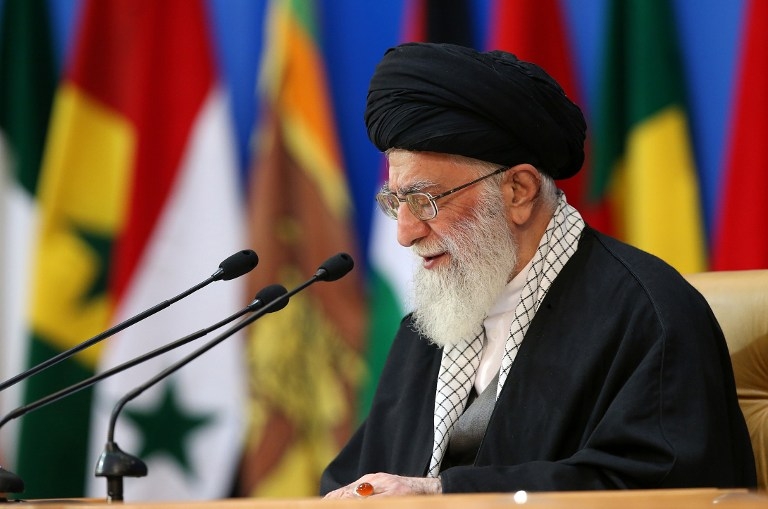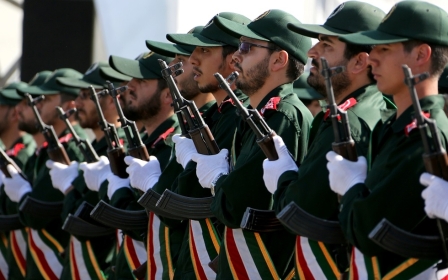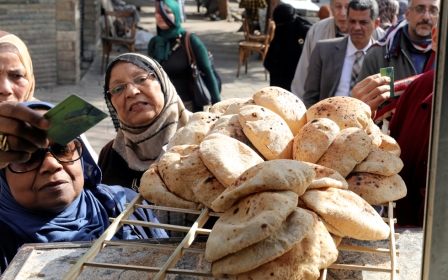Is there a future for Egyptian-Iranian relations?

On 13 March, Ali Larijani, the chairman of the Iranian parliament, openly encouraged Egypt to pursue better relations with Iran, saying that Tehran welcomes all procedures that would lead to the eventual normalisation of relations with Cairo. Despite some steps being taken in this regard, nothing substantial has materialised, Larijani said.
While Iran has been trying for some time to move its relations with Egypt forward, Larijani’s comments may have been sparked by Egypt’s announcement earlier this month that it plans to conduct military exercises with Bahrain and the United Arab Emirates. The exercises will be conducted with both countries separately and will involve ground, air, and naval forces.
The announcement came a day after Bahram Qassemi, the Iranian foreign ministry spokesperson, reiterated Iran’s sovereignty over three islands - Abu Musa, Greater Tunb and Lesser Tunb - over which it is in dispute with the UAE. “Iran’s sovereignty over these islands is an undeniable and eternal reality," Qassemi said.
Close to the Strait of Hormuz, the islands offer a strategic advantage over the strait, which Iran has threatened to close in the past in the event of a military confrontation with the US.
These comments were a response to an Arab League’s decision earlier this month calling the islands "occupied" by Iran and reasserting Emirati sovereignty over them. Clearly escalating the situation and with an alarming tone, the decision, paired with the military exercise, appears to be a direct message to Iran.
Iran's keen on Egypt
Larijani’s remarks were meant to remind Egypt that Iran is not only open for positive relations, but encourages them.
Earlier this month, Alaeddin Boroujerdi, chairman of the Iranian parliament’s foreign affairs committee, met with Yasser Othman, head of Egypt's interest section office in Iran.
Boroujerdi hoped for better relations, while Othman further stated that both have the potential to broaden their cooperation in the tourism industry. This is not new; last year the Egyptian Minister of Tourism encouraged Iranian tourists to visit the country's touristic sites the same way they visit Antalya – the Turkish resort city popular with Iranians.
In Egypt many believe Iranians visit to proselytise Shiism. Contrary to popular belief, many Iranians spend their vacations abroad in order to avoid the restrictions they face in Iran.
Iran is not only open for positive relations, but encourages them
This month, Iran imported 25,000 tonnes of oranges from Egypt in preparation for Nawrouz, the Persian New Year festival. Iran certainly has no shortages in oranges or fruits, and could rely on Turkey next door if needed. This move can be seen as an attempt to break the ice with Egypt.
In terms of realpolitik, Iran has also been keen to draw Egypt closer to it. Iran views Egypt as a strong regional influencer that shares plenty with the Iranian regime on regional matters, namely Syria and to a lesser extent, Yemen.
Last year, Iran’s foreign minister, Mohammad Javad Zarif, requested that Egypt be invited to the Syria peace talks in the Swiss city of Lausanne. This was shortly after Egypt voted against the French proposal in the UN Security Council in line with the Russian vote.
Saudi Arabia, which backed the French resolution, was extremely angered by Egypt’s vote, a move that added insult to injury after the disputed islands of Tiran and Sanafir, in the waters between Egypt and Saudi Arabia, were declared Egyptian by Cairo courts.
Soon Saudi Arabia suspended its planned shipments of $23bn oil aid, and Egyptian-Saudi relations quickly turned sour. After the suspension, the Egyptian petroleum minister made a trip to Iran to explore the possibilities of striking an oil deal. Though a deal was not made, it struck one with Iraq instead, a close ally of Iran.
Towards the end of last year, the UAE tried to mediate a meeting between Egypt's President Abdul Fattah al-Sisi and Saudi Arabia's King Salman, but the meeting never took place. The dent in Egyptian-Saudi relations has certainly encouraged Iran to approach Egypt, although we may find the dent unravelling very soon.
Egyptian considerations
Saudi Arabia’s Aramco oil company announced on 15 March that it will resume oil shipments to Egypt, even as the latter confirmed its oil deal with Iraq will remain unaffected. This is perhaps the fruit of the Saudi-American “historic turning point” after Deputy Crown Prince Muhammed bin Salman visited the White House.
Traditionally, Egypt has been aligned with the GCC states in terms of security and their general overview of the region. The military exercises that will be carried with the UAE and Bahrain are a continuation of that. The new administration in the US is trying to restore full cooperation between Saudi and Egypt in order to confront Iran’s rising influence in the region.
Any major rapprochement in response to Larijani’s call for now seems far-fetched
Looking at realpolitik alliances, it is extremely unlikely that Egypt will change anytime soon, though its improved ties with Russia may be seen by Tehran as a remoulding, even if mild, of Egyptian foreign policy.
Egypt carries policy inertia that does not view the Iranian regime favourably, mainly due to the latter's promotion of its ideology. It’s worth noting that Egypt, however, has not entirely cut off Iran. Egypt even offered its condolences upon the passing away of former president Akbar Hashemi Rafsanjani this year, a gesture welcomed by Iranian officials.
Egypt has the ability to improve its relationship with Iran in matters of trade and tourism, something its suffering economy can certainly benefit from. Iran still trades with countries in the region it is in conflict with, and Egypt is no different.
However any major rapprochement in response to Larijani’s call in the meantime seems far-fetched.
- Mustafa Salama is a political analyst, consultant and freelance writer. Salama has extensive experience and an academic background in Middle East Affairs.
The views expressed in this article belong to the author and do not necessarily reflect the editorial policy of Middle East Eye.
Image: Ayatollah Ali Khamenei attends an international conference in support of the Palestinian intifada, 21 February, 2017 (AFP)
New MEE newsletter: Jerusalem Dispatch
Sign up to get the latest insights and analysis on Israel-Palestine, alongside Turkey Unpacked and other MEE newsletters
Middle East Eye delivers independent and unrivalled coverage and analysis of the Middle East, North Africa and beyond. To learn more about republishing this content and the associated fees, please fill out this form. More about MEE can be found here.




